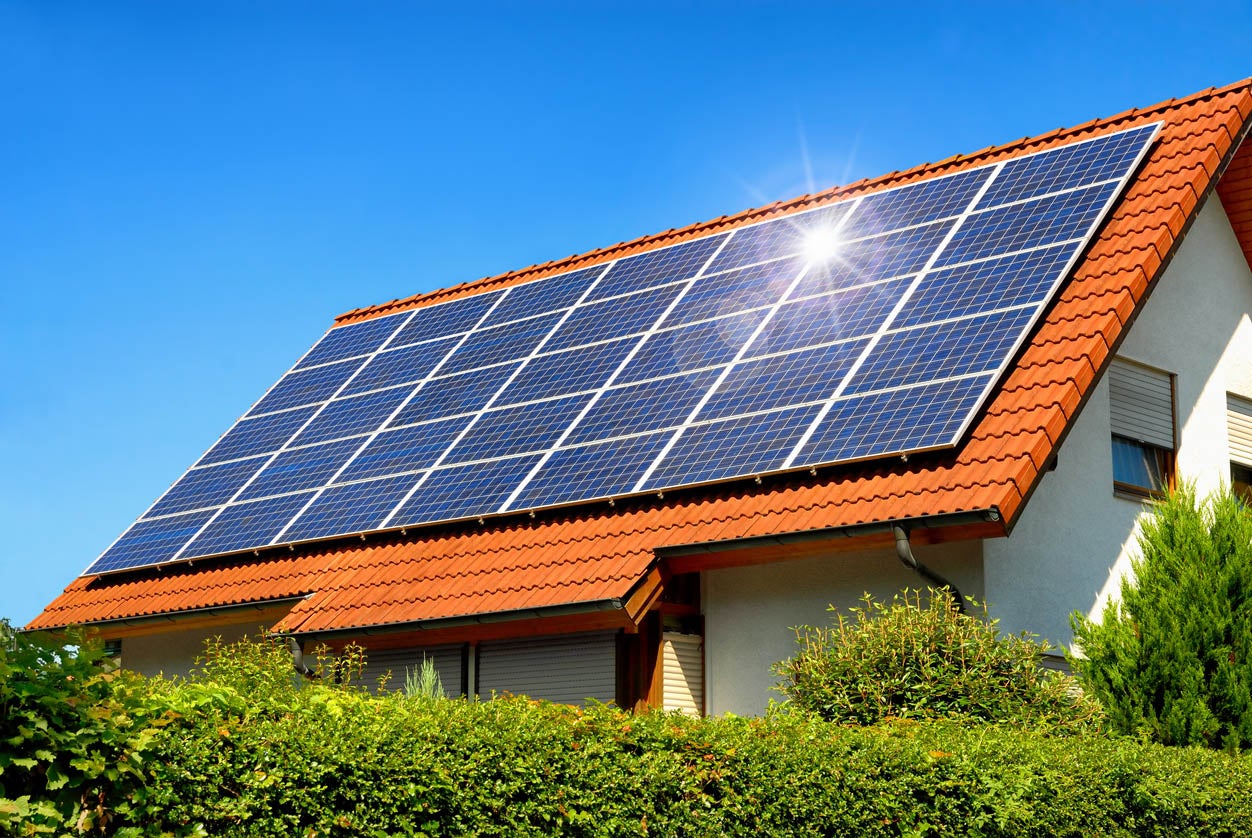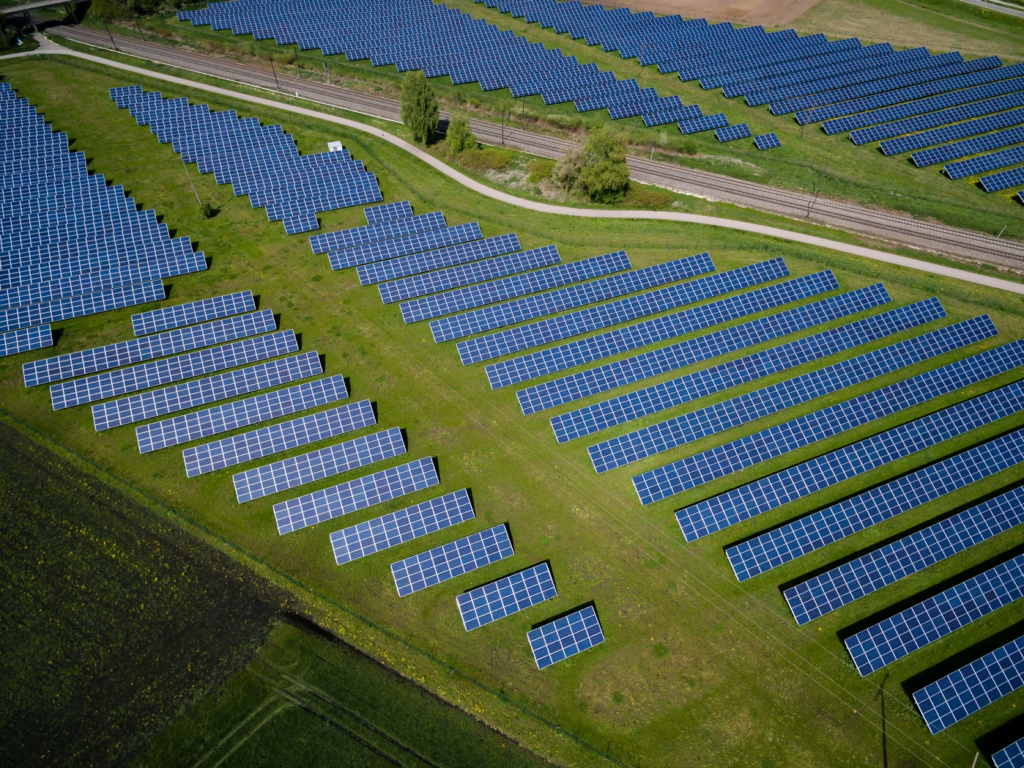Solar power offers enormous environmental and economic benefits as an abundant, renewable energy source. By installing solar panels to convert sunlight into electricity, homeowners and businesses can reduce their carbon footprint, save substantially on utility bills, increase property values, and contribute to a more sustainable future. As solar technology rapidly advances and costs continue to fall, solar energy makes increasing sense for more applications and locations.
A Brighter Future: Environmental Benefits of Solar Power
Switching to solar energy and seeking the help of solar experts provides significant advantages for the planet’s health, including greenhouse gas emissions, air quality, resource conservation, and water usage.
Here are some specific environmental benefits of solar energy:
- Reduced greenhouse gas emissions: Generating electricity from fossil fuels releases high levels of planet-warming greenhouse gases into the atmosphere. Solar energy systems produce clean, renewable electricity without any greenhouse gas emissions. Widespread adoption of solar energy could significantly reduce electricity-related emissions that contribute to climate change.
- Improved air quality: Conventional coal and natural gas power plants emit air pollutants like sulfur dioxide, nitrogen oxides, particulate matter, and heavy metals. Replacing fossil fuel plants with solar energy leads to cleaner, healthier air.
- Conservation of resources: Fossil fuels are non-renewable, limited resources that take millions of years to form naturally. Expanding solar energy, which relies on the sun’s abundant renewable supply, helps conserve our precious fossil fuel reserves for other critical uses.
- Reduced water usage: Fossil fuel and nuclear electricity generation consume massive volumes of water for cooling and steam generation. Solar photovoltaic systems require little to no water to operate, conserving water resources.
Financial Brilliance: Economic Advantages of Going Solar
In addition to the environmental gains, installing residential or commercial solar delivers compelling economic benefits through lower electricity bills, increased property values, incentives/tax credits, and domestic job growth.
Here are some key economic benefits of solar energy:
- Lower electricity bills: Solar panels can eliminate 50-100% of grid-supplied electric needs, insulating homeowners and businesses from rising utility rates.
- Increased property value: Multiple studies confirm that solar energy systems can increase property values by 4-8% on average, yielding an impressive investment return.
- Government incentives and tax credits: Significant federal, state, and local incentives remain available to defray the upfront costs of solar panel systems for homeowners and commercial operations. These include federal investment tax credits, solar renewable energy credits, property tax exemptions, and net metering credits.
- Job creation: Solar energy represents one of the fastest-growing employment sectors in the country, employing over 250,000 workers in high-quality jobs related to solar installation, manufacturing, distribution, research, and more.
How Solar Energy Works
At a basic level, solar energy systems work by converting sunlight into electricity. Specifically, solar cells within solar panels absorb photons from sunlight and convert them into an electric current using a photovoltaic effect. Multiple solar panels are connected together into an array to generate energy, which is then converted from direct current (DC) into alternating current (AC) electricity that can power home appliances and devices.
A solar energy system typically consists of the following components:
- Solar panels: Solar panels consist of solar photovoltaic cells, typically made from silicon. Many individual solar cells are wired together into solar photovoltaic modules, which are then assembled into solar panels. The solar cells absorb sunlight and convert it into direct current electricity via the photovoltaic effect. The panels face the sun to maximize their absorption of solar radiation.
- Inverter: An inverter is an essential component since the DC electricity generated from the solar panels needs to be converted into the AC electricity used for the grid and appliances. Solar inverters transform the DC output into usable AC current and manage the electricity flow between the solar array and appliance loads. Wattage capabilities rate inverters and should be properly sized for the solar array.
- Mounting system: The solar array mounting system securely fastens the solar panels in the optimum sun-facing orientation. Rooftop mounts bolt into roof rafters or use ballasts to provide the proper tilt angle direction. Ground mounting uses poles anchored into the soil to angle and orient the solar panels to maximize sun exposure.
- Monitoring system: Solar monitoring systems use sensors and software to track solar production data, provide performance alerts, and ensure the system is running efficiently. Key monitoring data includes solar output, inverter function, and the ratio of solar yield to ideal conditions. Remote surveillance of solar monitoring informs maintenance decisions.

The Benefits of Switching to Solar Energy
There are many benefits to switching to solar energy for individuals and the environment. Some of the key benefits include:
- Reduce your carbon footprint: Using solar can reduce a household’s carbon emissions by up to 15 tons annually, contributing to the fight against climate change.
- Save money on your electricity bills: Solar allows you to generate your own electricity, reducing your dependence on the grid and vulnerability to utility rate hikes.
- Increase the value of your home: Solar installations can boost your home’s value and appeal to buyers focused on energy efficiency and sustainability.
- Become more energy independent: Solar lets you personally control your energy supply and reduce reliance on the aging power grid infrastructure.
- Support a sustainable future: Going solar means supporting cleaner air and water, conserving natural resources, and building a renewable energy economy.
Is Solar Energy Right for You?
Solar energy is a great option for many homeowners and businesses. However, it is important to consider your individual needs and circumstances before deciding. Some factors to consider include:
- Your energy consumption: How much electricity do you use monthly and annually? High energy users stand to realize greater savings by meeting a larger portion of their demand with solar generation.
- Your roof size and orientation: Does your property have adequate south-facing roof space not blocked by trees or other structures? Site conditions impact solar array sizing and energy production.
- Your budget: What is your budget for an energy upgrade like solar? Naturally more panels offset greater costs but produce bigger savings over time. Many affordable financing options leverage solar’s incentives and accelerated depreciation to minimize out-of-pocket investment.
- Your local climate: While sunny climates maximize solar output, advances in panel efficiency enable solar power to be economically viable even in cloudier northern regions. Use online tools to estimate your solar potential based on location.
Conclusion
Solar energy delivers value across the board with excellent return on investment and environmental rewards. The solar experts can advise that recent improvements making solar more affordable and efficient combined with generous tax incentives mean now is the perfect time to explore how you can harness the power of the sun. Evaluating your site’s solar access, energy demand, and financing options will determine if going solar is right for your home or business. By switching to solar power, you can gain energy independence, save on bills, increase property value, and contribute to a cleaner, sustainable future.






